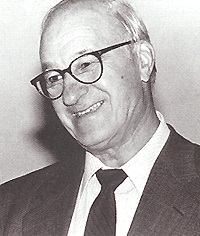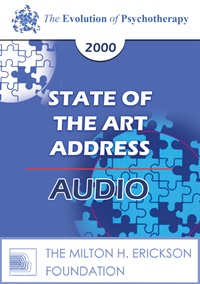EP00 State of the Art Address 03 - Self-Efficacy: The Foundation of Human Agency - Albert Bandura, PhD
- Average Rating:
- Not yet rated
- Topic Areas:
- State of the Art Address | Belief Systems | Psychotherapy | Therapist Development
- Categories:
- Evolution of Psychotherapy | Evolution of Psychotherapy 2000
- Faculty:
- Albert Bandura
- Duration:
- 51 Minutes
- Format:
- Audio Only
- Original Program Date:
- May 27, 2000
- License:
- Never Expires.
Description
Description: This session offers a far-reaching look at self-efficacy as a core driver of motivation, resilience, and change. Drawing on decades of research and applied examples, it shows how beliefs about personal and collective agency shape learning, emotional health, behavior change, and social action, from anxiety and depression to health habits and community-level outcomes. The talk gives therapists and students a practical framework for understanding why confidence, mastery, and perceived control matter so deeply in both clinical work and everyday life.
Syllabus Description: Belief in one's personal efficacy is the foundation of human motivation, accomplishments and emotional well-being. This address will analyze the sources of people's beliefs in their efficacy, their cognitive, motivational and emotional effects, and how to build a resilient sense of efficacy for personal and social betterment.
Educational Objectives:
- To list four ways in which one builds a resilient sense of personal efficacy
- To describe the elements of guided mastery treatment
*Sessions may be edited for content and to preserve confidentiality*
Credits
Faculty

Albert Bandura Related Seminars and Products
ALBERT BANDURA, Ph.D., is Professor of Psychology, Stanford University. He has been elected to the American Academy of Arts and Sciences and the Institute of Medicine of the National Academy of Science. Dr. Bandura is a proponent of Self-Efficacy Theory. This theory and its diverse applications are presented in his recently published book, Self-Efficacy: The Exercise of Control.
Bandura has been responsible for contributions to the field of education and to several fields of psychology, including social cognitive theory, therapy, and personality psychology, and was also of incluence in the transition between behaviorism and cognitive psychology. He is known as the originator of social learning theory (renamed the social cognitive theory) and the theoretical construct of self-efficacy, and is also responsible for the influential 1961 Bobo doll experiment. This Bobo doll experiment demonstrated the concept of observational learning.


